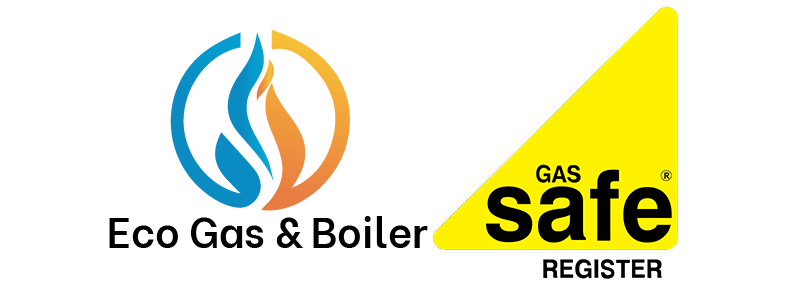Installing a boiler is significant, whether for a residential home or a commercial building. The process involves careful planning, selecting the right type of boiler, and ensuring that the installation meets all safety and efficiency standards. This guide will provide a comprehensive overview of boilers installation, covering everything from choosing the right boiler to maintenance tips.
Boilers are crucial in providing heat and hot water for homes and businesses. A well-installed boiler can significantly enhance a building’s efficiency and comfort. However, the installation process is complex and requires professional expertise.
This guide will explore the different types of boilers, the installation process, and essential maintenance tips to ensure your boiler operates efficiently and safely.
Choosing the Right Boiler
Selecting the right boiler is the first step in the installation process. Several types of boilers are available, each with advantages and disadvantages. The main types of boilers include:
- Combi Boilers are compact and efficient, providing heating and hot water without requiring a separate water tank.
- System Boilers: Ideal for larger homes, these boilers require a separate hot water cylinder but can provide hot water to multiple taps simultaneously.
- Conventional Boilers: Also known as regular boilers, these require both a hot water cylinder and a cold water storage tank, making them suitable for homes with high hot water demand.
Assessing Your Heating Needs
Before selecting a boiler, it’s essential to assess your heating needs. Factors to consider include the size of your home, the number of bathrooms, and your hot water usage patterns. An energy audit can help determine the most efficient boiler for your needs.
The Installation Process
Boiler installation is a complex process that should be carried out by a certified professional. Here’s an overview of what the installation process typically involves:
- Initial Assessment: The installer will assess your home’s heating needs and recommend the best type and size of boiler.
- Choosing the Location: The boiler should be installed to allow easy access and ventilation. Common locations include kitchens, utility rooms, and airing cupboards.
- Installing the Boiler: The installer will connect the boiler to the water and gas supply and install flue pipes to vent exhaust gases safely outside.
- Testing and Commissioning: Once installed, the boiler will be thoroughly tested to ensure it operates correctly and efficiently.
Ensuring Compliance with Regulations
Boiler installation must comply with local building regulations and safety standards. Your installer should provide a certificate of compliance upon completion of the installation.
Boiler Maintenance Tips
Regular maintenance is essential to keep your boiler running efficiently and to extend its lifespan. Here are some maintenance tips:
- Annual Servicing: Have your boiler serviced by a professional annually to check for any issues and ensure it runs efficiently.
- Bleeding Radiators: Regularly bleed your radiators to remove trapped air and ensure even heating throughout your home.
- Checking Pressure Levels: Monitor your boiler’s pressure levels and top up if necessary to maintain optimal performance.
- Inspecting for Leaks: Regularly check for any signs of leaks around the boiler and radiators.
Common Installation Mistakes to Avoid
Avoiding common mistakes during the installation process can prevent future problems. Some mistakes to watch out for include:
- Incorrect Sizing: Installing a boiler that is too small or too large for your home can lead to inefficiency and increased energy costs.
- Poor Ventilation: Ensuring proper ventilation is crucial to prevent the build-up of dangerous gases like carbon monoxide.
- Improper Flue Installation: The flue must be correctly installed to vent exhaust gases outside safely.
Energy Efficiency and Cost Savings
An efficiently installed boiler can lead to significant energy savings. Modern boilers are designed to be highly efficient, reducing energy consumption and lowering your utility bills. Additionally, many boilers have smart controls that allow you to optimize heating schedules and monitor energy usage.
The Importance of Professional Installation
Hiring a professional for boiler installation is essential for safety and efficiency. A certified installer will ensure that the installation complies with all regulations and that the boiler operates at peak performance. They will also provide valuable advice on maintaining your boiler and maximizing efficiency.
Conclusion
Boilers installation is a critical process that requires careful planning and professional expertise. By selecting the right boiler, ensuring proper installation, and following regular maintenance tips, you can enjoy efficient and reliable heating for many years. Whether installing a boiler in a new home or replacing an old system, this guide provides the essential information to make informed decisions and achieve optimal heating solutions.
FAQs
What type of boiler is best for a small home? Combi boilers are ideal for small homes due to their compact size and ability to provide heating and hot water without needing a separate tank.
How often should I service my boiler? It is recommended that your boiler be serviced annually by a professional to ensure it is operating efficiently and to catch any potential issues early.
Can I install a boiler myself? Boiler installation should always be carried out by a certified professional to ensure safety and compliance with regulations.
What are the signs that my boiler needs replacing? Common signs that your boiler needs replacing include frequent breakdowns, increasing energy bills, and the boiler being over 15 years old.
How can I improve my boiler’s efficiency? Regular maintenance, bleeding radiators, and using smart controls can help improve your boiler’s efficiency.
What should I do if my boiler is leaking? If your boiler leaks, turn off the water supply and contact a professional installer immediately to inspect and repair the issue.


